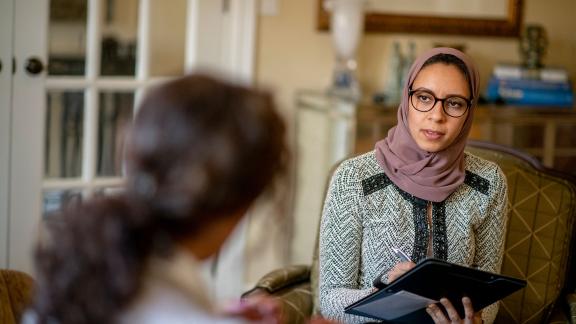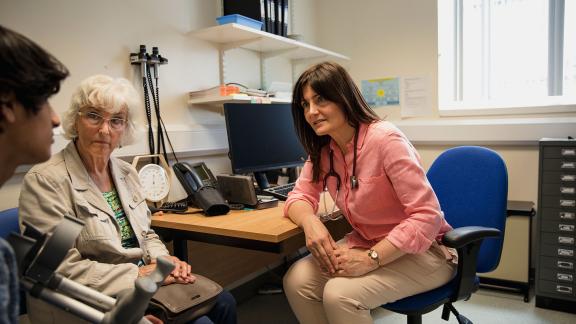Module seven: planning, ethical decisions and governance

Key takeaways from the final module of the South East Primary Care Network Leadership Development Programme.
PCNs continue to deliver in the context of changing conditions and a lack of certainty. In some areas PCNs are breaking ground through delivery of new pathways of care and innovating within population health interventions. However, at times, system conditions lead to projects that have been set up not achieving their aims. This leads to workforce frustration and overrunning or increasing costs.
Some PCN leaders experience difficulty in terms of time, capability and resource to manage projects effectively in primary care. Partly it is because we in primary care do not have the breadth of team structure or funding streams for project management that secondary care has. The NHS Confederation’s evidence to the Health Select Committee Inquiry Future of General Practice report (2021) states:
“There has been a lack of organisational development for primary care in the way we have seen in the secondary care sector and a lack of nationally funded leadership programmes that equip primary care leaders with the skills they need to manage multi-disciplinary teams, build relationships beyond general practice and primary care and effectively contribute to the work across the health and care system.”
Project planning
During this module, participants explored project planning and concepts for making good decisions. We also shared project management tools and top tips, in order to help each other as busy PCN leaders to be more likely to achieve successful outcomes from our projects.
One of the tools used was a project management chart to help with scoping, goal setting and identifying project leads and people involved. About the tool, one participant was very pleased and excited to have a new perspective on her projects. She said:
“I just loved that because it’s so visual. You can see you all my projects. I’ve got several owners and people involved for some things. It was just amazing just to get it all down. This is really applicable to me I mean a lot of it’s been really good, but this today has absolutely nailed it for me. It’s brilliant! I’m going to go home and I’m going to actually use it and look at the projects and look at who I can ask to help me with them because obviously when you look at the goals, you can see what other people can do.”
Making good decisions
To enable good decision-making, we know that first we need to understand which decisions should be made at which level. PCN leaders explored frameworks for ensuring our governance processes are fit for purpose in our PCNs, and also frameworks for ethical decision-making.
The course participants examined one of the core balancing acts that exist in developing new models – that of the balance between innovation and continuity. Each participant was asked to come up with their top ten tips to ensure effective decision-making and they explored these tips as a cohort.
One participant talked through their approach to sharing responsibilities across their PCN and the importance of face-to-face meetings:
“Encourage them, not feeling you have to take responsibility for everything, but to share important lessons such as never do anything alone, but try and involve other people. Build relationships and trust. Get people in the room together. Virtual is very useful, but there's no substitute for actually meeting people in the flesh and ensuring that you get chance to build those relationships.”
The participants discussed what supports successful PCN projects. Key leadership behaviours identified were: being open and honest, involving the right people, taking time to make important decisions, listening to the board members, and being more of a facilitator to help people reach their decisions:
“I think one of the main things that's come out is what it means to lead as PCN leader. The idea within networks for example, is to be a facilitator, and to allow people to work to their strengths.”
Another key takeaway from the module was understanding what helps bids to be successful, and being honest about what we can achieve:
“It’s about effective decision making and the ability to manage projects and who owns them, managing the goal and how to measure them. And this can be used for all aspects of primary care and also remembering when putting a bid forward, everyone ups the ante because they want to be successful in their bid and just be cognisant of that when putting proposals together also.”
“…this has been a long journey, it went very quickly and there's been a lot of learning in it in terms of leadership and what this leadership mean as a PCN lead.”
“Networking, that's what this course is about. And this is what we were doing. And that is the takeaway from today. What are we going to do together?”
The reality is that there are many bidders who overpromise and under deliver and PCN leaders need to be aware of this and not fall into this trap.
Good governance is important, however so is ensuring knowledge of the data and creating the conditions for productive challenge. This is often where innovation happens, as we avoid group think and look at options critically before we commit. As leaders this means demonstrating openness to challenge, and actively asking for it. The learning was about creating the right environment and culture, where people feel capable, empowered, have positive relationships and can speak up without feat of repercussion.
The power of networking between PCNs
The PCN leaders who have completed the programme have finished with more knowledge, practical, applicable learning and a new close, trusted network with their ICS that they will use moving forward.
We are looking forward to discovering the next steps for our participants and what will be achieved for both staff and patient care by working together with these new networks of support.
Dr Rupa Joshi is a GP and clinical director for Wokingham North Primary Care Network and deputy chair of Berkshire West Primary Care Alliance; clinical adviser for NHS England’s Primary Care Transformation team; chair of the Workforce and Estates Design Group at NHS Confederation’s Primary Care Network; and clinical adviser for learning and development for the South-East PCN Development Programme.
Louise Wheeler is a primary care leadership development consultant.



